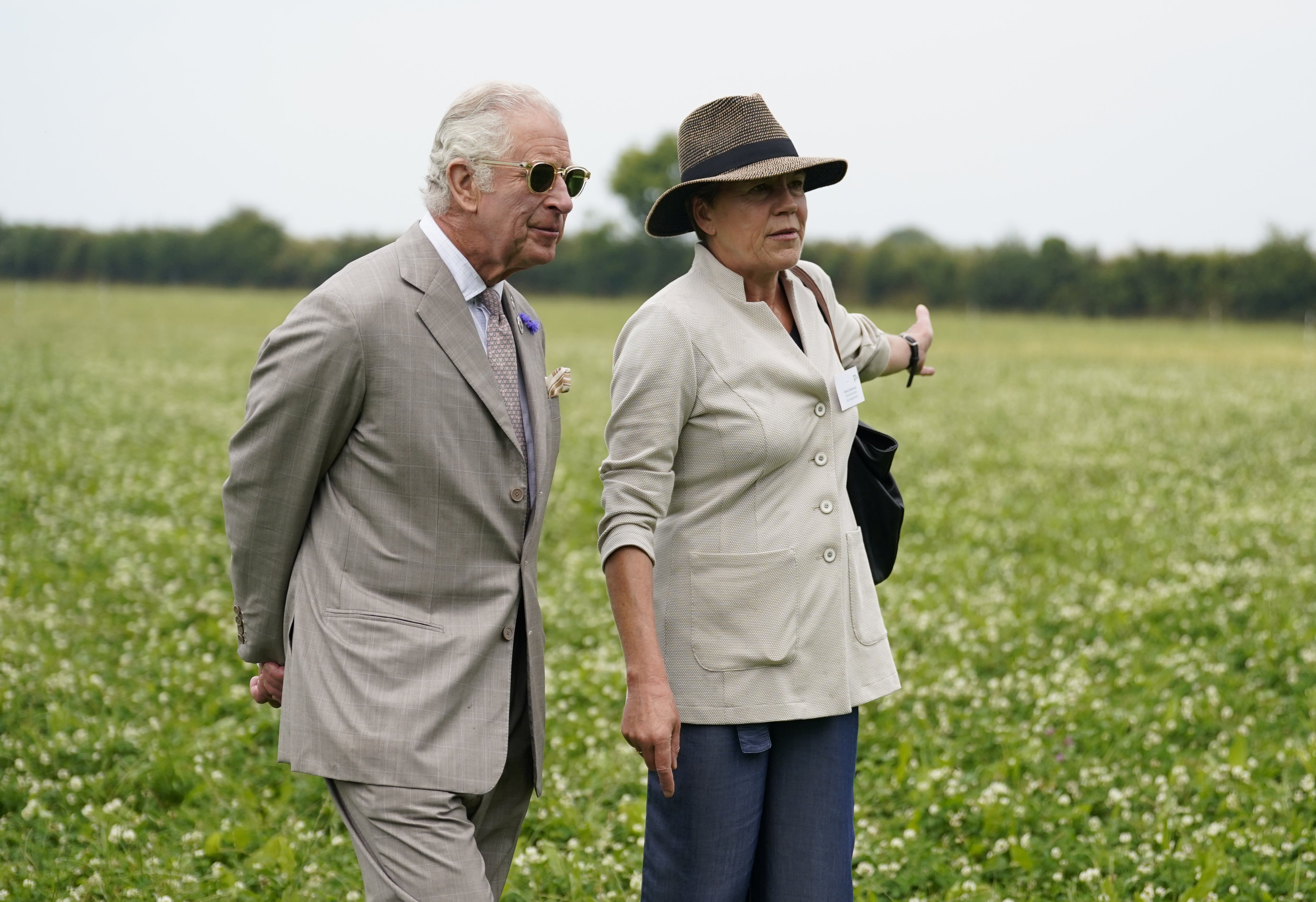Humans have lived off nature’s capital – not her income, says Charles
The Prince of Wales spoke as he visited a farm near Launceston.

Your support helps us to tell the story
From reproductive rights to climate change to Big Tech, The Independent is on the ground when the story is developing. Whether it's investigating the financials of Elon Musk's pro-Trump PAC or producing our latest documentary, 'The A Word', which shines a light on the American women fighting for reproductive rights, we know how important it is to parse out the facts from the messaging.
At such a critical moment in US history, we need reporters on the ground. Your donation allows us to keep sending journalists to speak to both sides of the story.
The Independent is trusted by Americans across the entire political spectrum. And unlike many other quality news outlets, we choose not to lock Americans out of our reporting and analysis with paywalls. We believe quality journalism should be available to everyone, paid for by those who can afford it.
Your support makes all the difference.The Prince of Wales says humanity has “lived off nature’s capital, without understanding we need to live off her income” in a speech at a farm in Cornwall.
Charles visited Trefranck Farm, near Launceston, on Tuesday, which was hosting the 10th anniversary of the Innovative Farmers initiative.
Founded by charity the Soil Association, of which Charles is a patron, it is a network of producers developing nature-friendly alternatives to intensive farming practices.
The prince met with farmers switching to “herbal leys” – a mix of clover, grasses and wildflowers for grazing – instead of just a monoculture of rye grass favoured elsewhere.
While most of the country bakes in unprecedented heat and grassland lies dry and yellow, the team at Trefranck showed off their rich green landscape.
Kate Still, of the Soil Association, told the PA news agency: “More and more farms are embracing this kind of diversity and going for these diverse swards – and more and more non-organic farmers.”
She said that many more would make the switch, otherwise they would have nothing to feed their livestock as the frequency and intensity of heat waves increase due to climate change.
James Daniel, of consultancy Precision Grazing LTD, explained farmers are also switching to “mob grazing” – where animals are regularly moved from field to field instead of grazing the grass down to the roots.
“It is about moving animals more often, only letting a group of animals stay in one place for three to five days,” he said.
“It is about changing how you manage animals and it is more natural, before we started putting up fences and hedges, they would have roamed free.”
Mr Daniel said the prince was already well aware of the practice.
“The prince said to us: ‘In order to farm for the future we need to give a little bit back to nature’,” Mr Daniel said.
Charles also met with farmers breeding sheep resistant to gut parasites in order to reduce the reliance on chemical wormers, and people developing satellite technology to help manage grazing land.
In a speech, the prince said: “I have always felt at the end of the day we have over exploited nature for too long – we have lived off her capital, without understanding we need to live off income.”
He continued: “To get back to that we need to make sure whatever little profit we make, there is a bit of profit for nature at the same time.
“That way I think we might start to rebalance and get back to the point we can rescue this poor old planet for all our successors, otherwise we are running out of time very rapidly.”